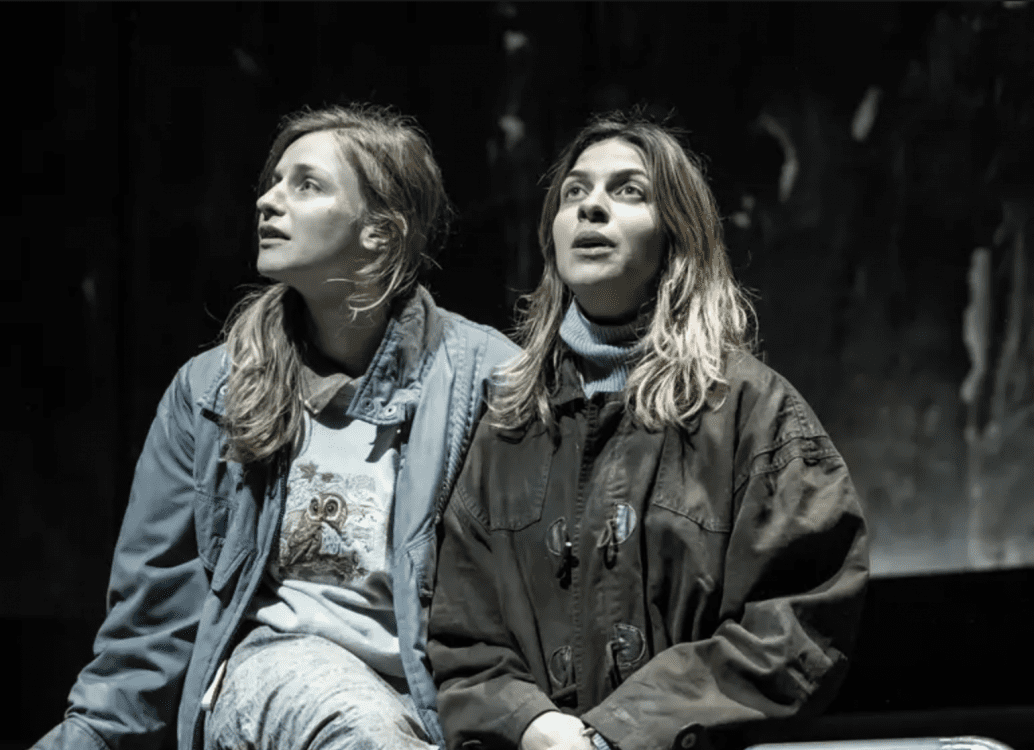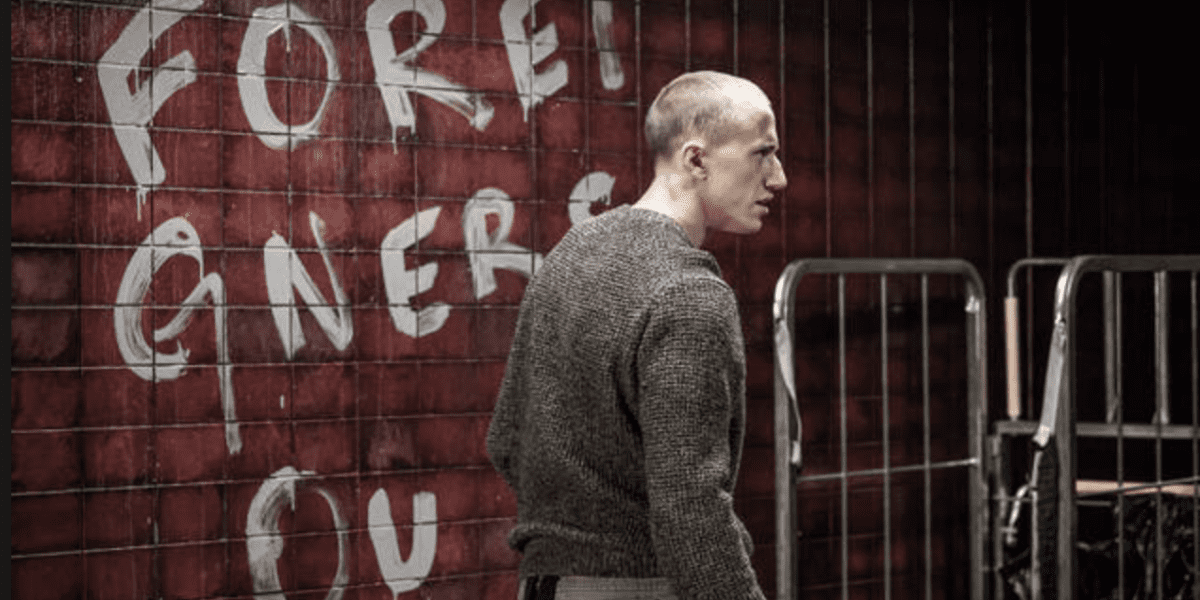Europe’s electrifying power comes with its presentation as a dystopian nightmare which, with a shiver, you realise is happening on your doorstep.
Written by David Greig 25 years ago, with the dividing of Yugoslavia as the backdrop, the political hinterland may have shifted but the play remains painfully relevant as Britain writhes towards defining its relationship with the continent. Set in a border town defined by its railway station as a blur on the tracks to somewhere else, it presents as a microcosm of the divisive and seemingly insoluble clashes happening all over. As two refugees (a father and daughter) move into town, shattered by the destruction of their own home, the reactions of the locals are varied but the hostility they are faced with is poignantly fatiguingly predictable, both for the habitually wary characters and the audience. Stationmaster Fret is initially put out by their sleeping on the platform, but gradually warms to Sava, the father, as he helps Fret in the protest against closing the station. The town’s place on the map fades as the trains begin to whip through rather than stopping. With rising unemployment and increasingly reactionary desperation, the young men of the town are swept up by xenophobic rhetoric as their home slips away, and begin to take it out on the refugees. The wife of one of the men, Adele the station porter, Dreams of new places as she watches the trains speeding towards vibrant destinations. Disenchanted with her husband’s increasingly militant attachment to the idea of home, she begins a relationship with Sava’s daughter, Katia, whose involuntary nomadic status facilitates an escape in Adele’s eyes.
Stationmaster Fret is initially put out by their sleeping on the platform, but gradually warms to Sava, the father, as he helps Fret in the protest against closing the station. The town’s place on the map fades as the trains begin to whip through rather than stopping. With rising unemployment and increasingly reactionary desperation, the young men of the town are swept up by xenophobic rhetoric as their home slips away, and begin to take it out on the refugees. The wife of one of the men, Adele the station porter, Dreams of new places as she watches the trains speeding towards vibrant destinations. Disenchanted with her husband’s increasingly militant attachment to the idea of home, she begins a relationship with Sava’s daughter, Katia, whose involuntary nomadic status facilitates an escape in Adele’s eyes.
There isn’t a weak link in the cast, and the variety amongst the characters’ personalities creates authentic and interesting relationships that reflect the adversity which has pressed them together. Ron Cook’s stiff upper lip in his role as the stationmaster combines wonderfully with the twinkling charisma of Kevork Malikyan’s Sava. Their touchingly wholesome kinship grounded in a shared love of railways provides a decent and refreshingly agenda-less friendship against the play’s unsettled backdrop. Natalia Tena is electric as Katia and expresses the emotional and bodily toll of her character’s past before she even begins to speak. Faye Marsay’s pensive Adele again provides contrast in her relationship with the firmly grounded Katia. Europe excels as a non-linear play and emphasises this in the effective staging. Making use of the vertical plane with a high platform, the characters stand above and below, often having different conversations which interrupt each other. There is an intact plot, but it drops you in the middle of events, and, along with these clashing conversations, opens out into moments of the company singing and speaking as a chorus, all of which contribute to the sense of discord. The atmosphere of desolation that seeps from Chloe Lamford’s metallic design provokes a sense of discomfort from the very beginning that rises as the vicious fascism creeps forward in the plot. With the bang and crackle of an ambitious and effective pyrotechnic finale, the play leaves the impression of a tectonically shifting continent that is unsettling yet deeply familiar.
Europe excels as a non-linear play and emphasises this in the effective staging. Making use of the vertical plane with a high platform, the characters stand above and below, often having different conversations which interrupt each other. There is an intact plot, but it drops you in the middle of events, and, along with these clashing conversations, opens out into moments of the company singing and speaking as a chorus, all of which contribute to the sense of discord. The atmosphere of desolation that seeps from Chloe Lamford’s metallic design provokes a sense of discomfort from the very beginning that rises as the vicious fascism creeps forward in the plot. With the bang and crackle of an ambitious and effective pyrotechnic finale, the play leaves the impression of a tectonically shifting continent that is unsettling yet deeply familiar.

